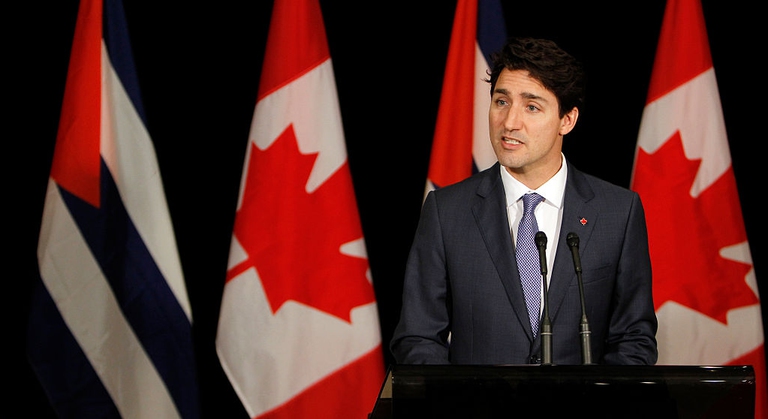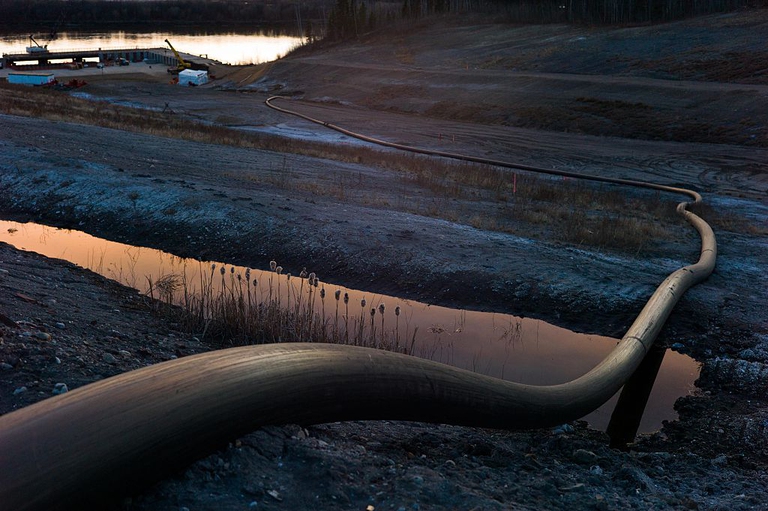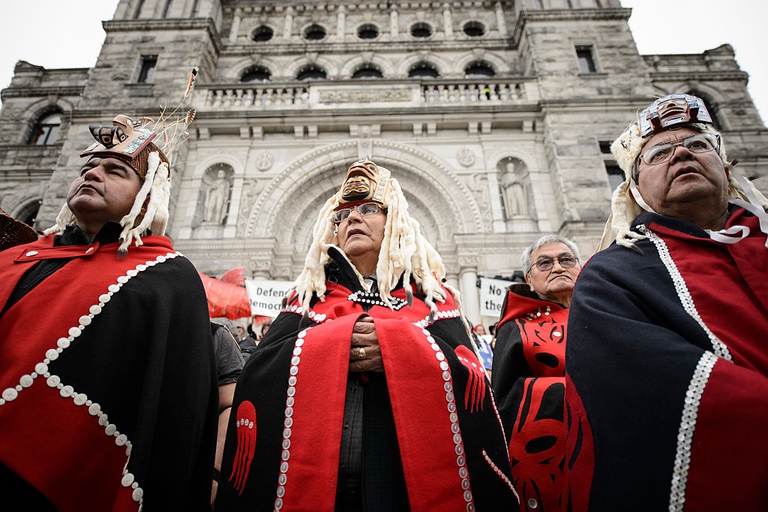
A special report from the Yuqui territory delves deep into the dreams, challenges, joys and sadness of one of Bolivia’s most vulnerable indigenous groups.
Canadian Prime Minister Justin Trudeau has approved the building of a major oil pipeline known as the Kinder Morgan pipeline, which will run from the Alberta Tar Sands to the port of Burnaby on the province of British Columbia’s (BC) Pacific coast, whilst rejecting the construction of its twin, the Northern Gateway pipeline. The Kinder
Canadian Prime Minister Justin Trudeau has approved the building of a major oil pipeline known as the Kinder Morgan pipeline, which will run from the Alberta Tar Sands to the port of Burnaby on the province of British Columbia’s (BC) Pacific coast, whilst rejecting the construction of its twin, the Northern Gateway pipeline.
The approved pipeline will transport oil from the Tar Sands, which contain nearly all of Canada’s oil wealth with an estimated 1.7 trillion barrels of bitumen oil, where the cost of extraction and export currently outweighs the profit made per barrel. To combat this, the Northern Gateway and Kinder Morgan pipelines were proposed to help reduce the cost of transportation and allow Canadian oil to get to Asian markets more easily.
With the building of the Kinder Morgan pipeline the amount of oil that can be transported to the Canadian coast will triple. With regards to its approval, Trudeau stated that it is “our duty to permit infrastructure so Canada’s resources can get to market in a more environmentally responsible way, creating jobs and a thriving economy” and that it is important to the national interests of Canada’s “clean energy transition“. Alberta Premier Rachel Notley argued that the pipeline will benefit the province’s economy, which is largely built around oil and has suffered recently due to low oil prices compounded by recent fires in the major Tar Sands oil town of Fort McMurray.
The controversy surrounding the pipeline is focused around a number of issues. Firstly, the notion that a clean energy transition can be combined with building oil pipelines has been criticised as impractical and impossible. Environmentalists have also warned that the additional oil tanker traffic will increase the risk of oil spills along the BC coast.
Furthermore, most First Nations groups have worked to oppose the pipeline in a move that is linked to the protests at the Standing Rock Sioux reservation against the Dakota Access pipeline in the United States. Charlene Aleck of the Tsleil-Waututh First Nation stated that, “this is not just our backyard, this is literally in our kitchen … it’s definitely the beginning of a long battle ahead for us”.
Counter to this, however, a third of First Nation groups consulted have declared their support for the pipeline with 39 of them signing benefit sharing agreements with the energy infrastructure company Kinder Morgan, which will compensate them for the risks they face due to the pipeline’s construction. First Nation Chief Jim Boucher argued at the assembly of First Nations that the oil sands can provide economic benefits to Aboriginal Canadians.
Overall, the controversy surrounds the issues of who will benefit, who will suffer, and what the long-term effects of the Kinder Morgan pipeline will be. The approval of its construction has hurt Trudeau’s reputation as an environmentalist, and it highlights how the economic reality is that Canada and Alberta still rely heavily on oil wealth.
Siamo anche su WhatsApp. Segui il canale ufficiale LifeGate per restare aggiornata, aggiornato sulle ultime notizie e sulle nostre attività.
![]()
Quest'opera è distribuita con Licenza Creative Commons Attribuzione - Non commerciale - Non opere derivate 4.0 Internazionale.
A special report from the Yuqui territory delves deep into the dreams, challenges, joys and sadness of one of Bolivia’s most vulnerable indigenous groups.
The Yuqui people of the Bolivian Amazon fight not only to survive in the face of settlers, logging and Covid-19, but to preserve their culture and identity.
Jair Bolsonaro is accused of crimes against humanity for persecuting indigenous Brazilians and destroying the Amazon. We speak to William Bourdon and Charly Salkazanov, the lawyers bringing the case before the ICC.
Activists hail the decision not to hold the 2023 World Anthropology Congress at a controversial Indian school for tribal children as originally planned.
Autumn Peltier is a water defender who began her fight for indigenous Canadians’ right to clean drinking water when she was only eight years old.
The pandemic threatens some of the world’s most endangered indigenous peoples, such as the Great Andamanese of the Andaman and Nicobar Islands in India.
The Upopoy National Ainu Museum has finally opened. With it the indigenous people of Hokkaido are gaining recognition but not access to fundamental rights.
A video shows the violent arrest of indigenous Chief Allan Adam, who was beaten by two Royal Canadian Mounted Police (RCMP) officers.









